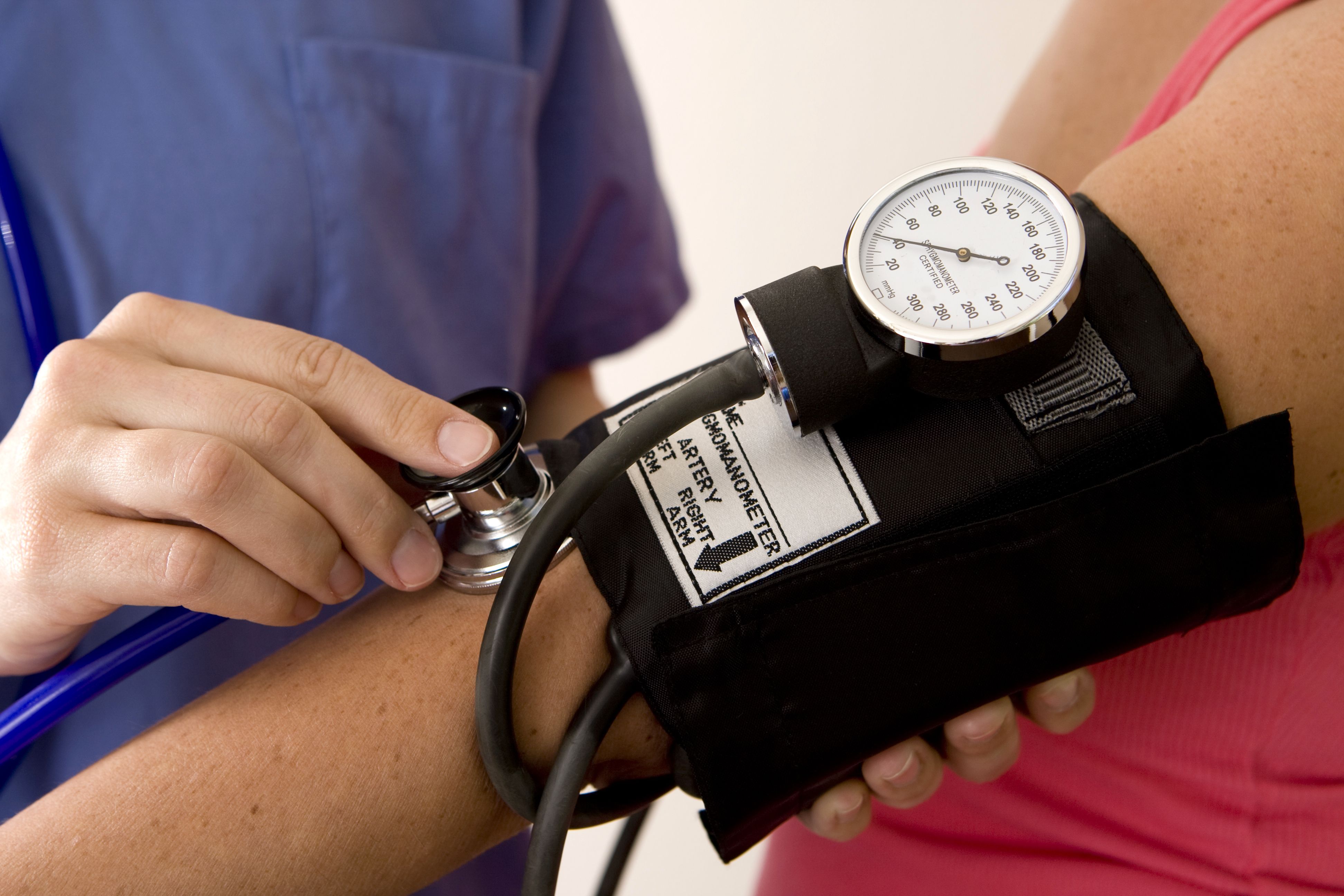Study Examines Impact of Systolic Blood Pressure Control on CVD in Diabetics
New research details the impact increased systolic blood pressure can have on cardiovascular health of diabetics.

Results from a new analysis of more than 175,000 Chinese patients is offering clinicians an overview of the age-specific risk associated with increased systolic blood pressure and cardiovascular disease in patients with type 2 diabetes.
Data from the analysis indicated each 10 mmHg increase above 120 mmHg in systolic blood pressure was associated with an 11% increase in risk of individual cardiovascular disease and a 20% increase in risk in cardiovascular mortality among patients with type 2 diabetes.
“This population‐based cohort study is the first to identify the positive and log‐linear age‐specific association between SBP and risk of CVD, coronary heart disease, stroke, heart failure, and CVD‐related mortality among Chinese patients with DM,” wrote study investigators.
While most international guidelines are in agreement over the importance of controlling systolic blood pressure, there is no consensus on target systolic blood pressure goals. To fill this apparent knowledge gap, a team of clinicians from Hong Kong designed a retrospective cohort study to detail age-specific associations of systolic blood pressure and cardiovascular disease among patients with type 2 diabetes.
The primary outcome for the investigators’ analyses was the incidence of a composite end point of cardiovascular disease and cardiovascular disease-related mortality. The secondary outcome for the study was independent cardiovascular disease, including subtypes of coronary heart disease, stroke, heart failure, and cardiovascular disease-related mortality.
Using information from the Hong Kong Hospital Authority, investigators identified a cohort of 180,492 patients for inclusion in their analysis. To be included in the analysis, patients needed to be 18-79 years old, have clinically diagnosed type 2 diabetes, and receive care in clinics in Hong Kong from 2008-2010. Of note, patients with a prior diagnosis of cardiovascular disease at baseline were excluded.
Baseline covariates included in the analyses were sex, age, smoking status, BMI, glycated hemoglobin, LDL-C, eGFR, Charlson Comorbidity Index, and use of ACE inhibitors or ARBs.
For the purpose of analysis, patients were categorized into 1 of 7 groups based on systolic blood pressure. These groups were defined as under 120 mmHg, 120-129, 130-139, 140-149, 150-159, 160-169, and 170 mmHg or greater.
During a follow-up period that included 1.5 million person-years of data, which represents a median follow-up period of 9.3 years, 32,545 patients developed cardiovascular disease. Based on this, the incident rate of the study cohort was 23.4 per 1000 person-years.
Results of the investigators’ analyses indicated a positive and log-linear association between systolic blood pressure and cardiovascular disease among the 4 age groups. However, the magnitude of this effect was mitigated as age group increased—noting the cardiovascular risk among those younger than 50 years was 22% greater than the risk among those 70-79 years of age.
Overall, results indicated each 10 mmHg increase in systolic blood pressure was associated with a 12% higher risk of all composite cardiovascular disease events (HR, 1.12; 95% CI, 1.10-1.13), an 11% higher risk of individual cardiovascular disease events (HR, 1.11; 95% CI, 1.10-1.13), and 20% higher risk of cardiovascular disease-related mortality (HR, 1.20; 95% CI, 1.17-1.22).
Investigators noted multiple limitations within their study for clinicians to consider when interpreting data and also called for additional studies to investigate these potential associations.
“The findings from this study suggest that younger patients and smokers may receive the most benefit from a lower BP target, and thus individual SBP target in patients with DM without CVD may be appropriate. An RCT is necessary to validate our findings,” wrote investigators.
This study, “Age‐Specific Associations Between Systolic Blood Pressure and Cardiovascular Disease: A 10‐Year Diabetes Mellitus Cohort Study,” was published in the Journal of the American Heart Association.